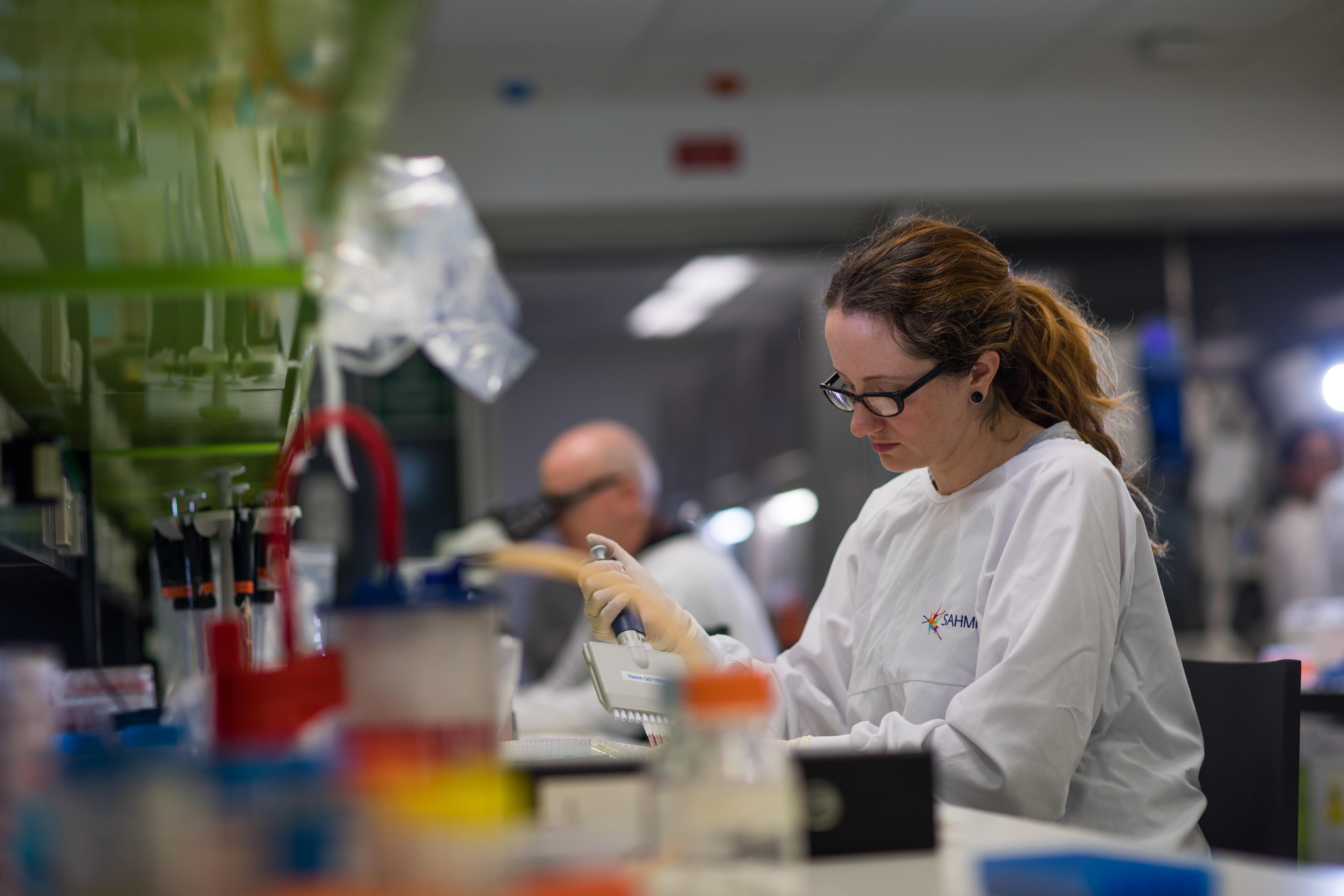Multiple myeloma is a blood cancer caused by the excessive growth of a type of immune cell called a plasma cell. These cancerous plasma cells grow in very large numbers in the bone marrow.

There are a number of treatments available for this cancer, many of which can slow the growth of these tumours, but the disease remains largely incurable.
The Myeloma Research Laboratory uses cutting-edge technologies to understand the factors in the bone marrow that support the survival of the cancer cells. The group aims to target these factors to produce new and effective treatments for this cancer.
Myeloma is the second-most common blood cancer, with more than 2,400 people diagnosed in Australia. This laboratory studies the molecular and cellular basis for the development of the cancer, which is characterised by the clonal proliferation of and immune cell type that normally protects us from infection but in the case of myeloma has turned malignant.
Clinical manifestations of myeloma are the development of osteolytic bone lesions, bone pain, hypercalcaemia, renal insufficiency, suppressed immunoglobulin production and increased bone marrow angiogenesis (blood vessel formation).
Most, if not all, cases of myeloma are preceded by a premalignant, asymptomatic, monoclonal gammopathy of uncertain significance (MGUS) stage. The intrinsic genetic factors which trigger the progression from this asymptomatic stage of the disease to overt malignant myeloma remains to be determined. Recent studies suggest that the bone marrow microenvironment plays a central role in disease progression.
Using state-of-the art genomics, in vitro models of cancer development and preclinical models of disease, the Myeloma Research Laboratory is focused on identifying the key genes which are responsible for disease progression and the role played by the bone microenvironment in disease development and relapse. The group believes that these approaches will enable new molecular markers of disease risk to be identified, potentially leading to the design of drugs against novel therapeutic targets.





